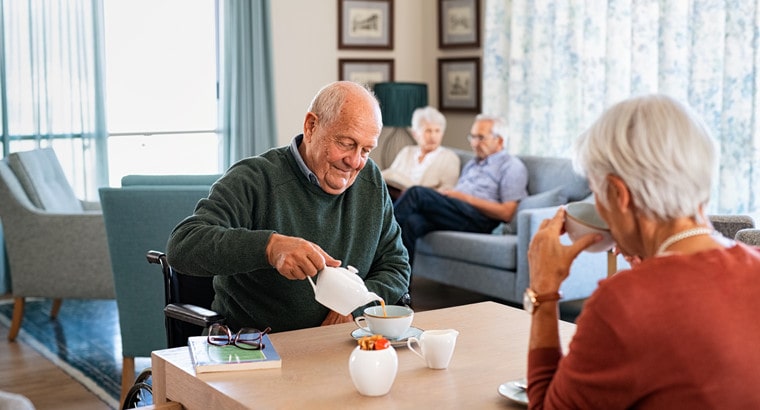It is safe to say that when it comes to elderly care, many people assume that nursing homes, or care homes, are not the best places for their loved ones.
Of course, this is unfair as, for many older people, these settings improve their lives vastly.
Why? Because not only do they care for them (it’s in the name!), but care homes play a crucial role in fostering a sense of belonging and community among their residents.
However, you, as the younger and understandably concerned relative, may be wondering how exactly they do this. Below are some of the key ways, so read on and enjoy!
Establishing a Welcoming Atmosphere
Signature care homes strive to create an environment that feels like home. Warm and inviting communal areas, comfortable furnishings, and personalized spaces contribute to a sense of familiarity and comfort. Residents are encouraged to bring personal belongings, photographs, and mementos that reflect their identity and create a sense of continuity.
Individualized Care Plans
Care homes develop individualized care plans for each resident, taking into consideration their preferences, interests, and needs. This person-centered approach acknowledges the uniqueness of each resident and ensures their voices and choices are respected and incorporated into their care.
Social Activities and Programs
Care homes organize a variety of social activities and programs that encourage interaction, engagement, and socialization among residents. These may include group outings, game nights, art classes, musical performances, and themed events. Such activities create opportunities for residents to connect, share experiences, and build relationships, fostering a sense of belonging within the community.
Resident Involvement in Decision-Making
Care homes involve residents in decision-making processes whenever possible. This can include participating in resident councils or committees where they have a voice in matters that affect their living environment and the overall functioning of the care home. Having a say in decision-making helps residents feel valued, respected, and empowered.
Celebrating Milestones and Special Occasions
Care homes recognize and celebrate residents’ birthdays, anniversaries, and other significant life events. Special meals, decorations, and personalized gestures are employed to make residents feel cherished and part of a larger community that cares about their well-being.
Volunteer Programs and Intergenerational Activities
Care homes often collaborate with local schools, organizations, and volunteers to organize intergenerational activities. These initiatives bring younger individuals and older adults together, providing opportunities for connection, learning, and sharing. Intergenerational interactions can be immensely rewarding for residents, fostering a sense of purpose and belonging.
Supportive Staff and Relationships
The care home staff plays a pivotal role in creating a sense of belonging. Staff members are trained to build rapport, establish meaningful connections, and provide emotional support to residents. Taking the time to know residents personally, listening to their stories, and demonstrating genuine care and compassion help cultivate a sense of belonging and trust.
Family Involvement
Care homes encourage family involvement and maintain open lines of communication with residents’ families. Regular family meetings, visitation policies, and family events are organized to facilitate meaningful engagement and ensure family members feel included and valued in their loved one’s care journey. So, you won’t be kept out of the loop!










